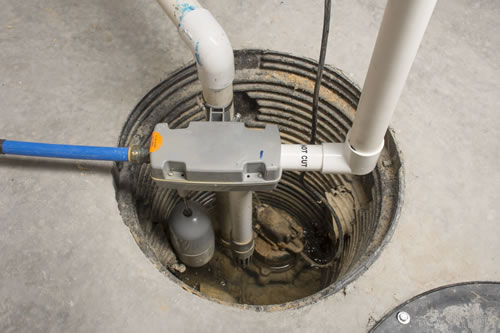
01
If you own a home with a basement, then you likely have a sump pump installed. This essential piece of equipment helps protect your home from flooding by pumping water out of your basement or crawl space. However, like any mechanical device, sump pumps can wear out over time and eventually need to be replaced. Here are four signs that it might be time to call a septic company and have your sump pump replaced.
The first sign that it might be time to replace your sump pump is age. Sump pumps are designed to last between 5-10 years, depending on the quality of the pump and the amount of use it receives. If your sump pump is over 10 years old, it's time to start thinking about a replacement. Even if it's still working, an older sump pump is more likely to fail when you need it most. By replacing your sump pump proactively, you can avoid costly water damage to your home.
If you hear clunking, grinding, or rattling coming from your sump pump, it could be a sign that the motor or impeller is wearing out. As the pump begins to fail, it will become louder and louder, and eventually, it will stop working altogether. If you hear strange noises coming from your sump pump, it's time to call a Charlotte Septic Pros and have it inspected.
If your sump pump is constantly running and pumping, it could be a sign that it's time to replace it. While it's normal for your sump pump to turn on and off periodically, if it's running more often than not, there's likely an issue with the pump or the float switch. This could be due to a clogged inlet screen, a broken impeller, or a failing motor. A reliable septic company can help diagnose the issue and recommend whether a repair or replacement is necessary.
The most obvious sign that it's time to replace your sump pump is water damage. If your basement or crawl space is flooding, it's likely that your sump pump has failed. In this case, you should call Charlotte Septic Pros immediately to have the pump replaced. Water damage can be expensive to repair, and if it's left untreated, it can lead to mold growth and other health hazards.
In addition to replacing your sump pump, it's also important to have your septic tank pumped regularly. Your septic tank is responsible for storing and treating wastewater from your home. Over time, solid waste can build up in the tank and cause it to overflow. This can lead to costly damage to your septic system and even contaminate your groundwater.
A septic company can help you determine how often your septic tank needs to be pumped based on the size of your tank and the number of people in your household. In general, most septic tanks should be pumped every 3-5 years to ensure proper functioning.
If you own a home with a sump pump, it's important to keep an eye out for signs that it might be time to replace it. These signs include age, strange noises, frequent pumping, and water damage. By replacing your sump pump proactively, you can avoid costly water damage to your home. Additionally, it's important to have your septic tank pumped regularly to ensure proper functioning and prevent contamination of your groundwater. Contact Charlotte Septic Pros to schedule your septic tank pumping and to have your sump pump inspected or replaced.

22
Can Bacteria Additives Eliminate the Need for Pumping? If you own a home with a septic system, you’ve probably seen…
Read more
12
A single slow drain in your home can feel like a minor inconvenience. Maybe the sink takes a little longer…
Read more
05
Are Slow Drains a Septic Issue or Just a Clog? Slow drains are one of those household problems that start…
Read more
02
What Septic Service Techs See That Homeowners Miss Most homeowners only think about their septic system when something goes wrong.…
Read more
21
Simple Habits That Protect Your Septic System A well-functioning septic system does its job quietly, but the moment something goes…
Read more
14
Pump Now or Pay Later: The Real Cost of Skipping Maintenance A properly functioning septic system is easy to forget…
Read more
11
Why Your Septic System Always Acts Up at the Worst Time Homeowners often feel that septic problems strike at the…
Read more
04
Early Warning Signs Your Septic Tank Needs Pumping For homeowners who rely on a septic system, routine maintenance is not…
Read more
29
Why Does My Septic System Smell Fine One Day and Terrible the Next? If you own a home with a…
Read more
19
Is Your Septic System Overdue? Simple Home Checks You Can Do Today For many homeowners, the septic system is a…
Read more